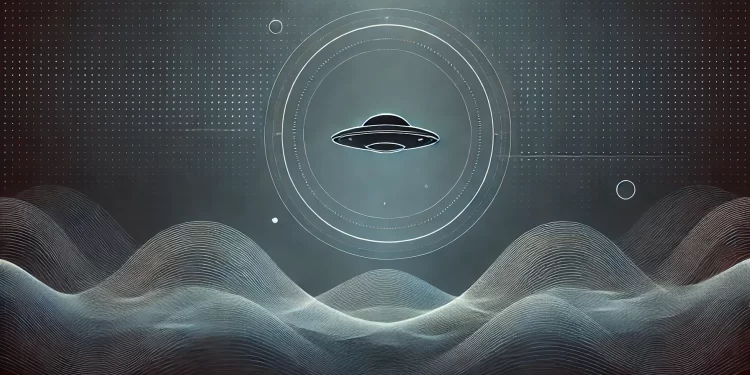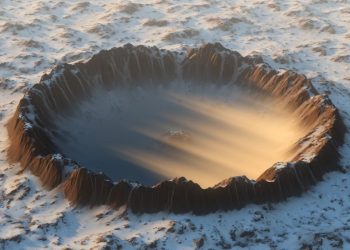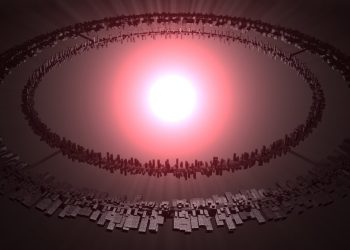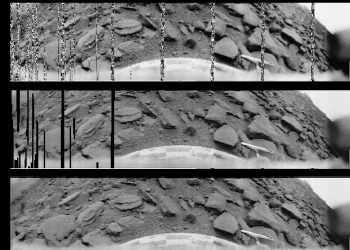In what many will say is a controversial new study, Harvard University scientists have ignited a fresh debate about the origins of unidentified anomalous phenomena (UAPs), suggesting the possibility that ancient, highly advanced civilizations—or even non-human entities—could be secretly living beneath Earth’s surface or in its vast oceans. As someone who has been writing about the UFO phenomena over a decade ago, when it was considered no more than a conspiracy theory, and as someone who has actively been researching ancient civilizations and their origins, I find this study welcoming, on the other hand. As I have stated on multiple occasions in the past, the entire idea of science is curiosity, and scientists should, on the foundation of the scientific method, be curious about many things, including, without prejudice the possibility of UFOs being a phenomenon that originates outside of our planet.
The Cryptoterrestrials Theory
The good thing is that there is a paradigm shift in UAP research, and it has taken off in the last couple of years. As revealed in an article by Popular Mechanics, for decades, discussions about UFOs and UAPs centered on extraterrestrial visitors, robotic probes, or experimental military aircraft. However, in this paper published in June 2024 in Philosophy and Cosmology, three academics from Harvard University and the University of Montana propose an alternative theory: what if these mysterious sightings have nothing to do with outer space but are instead rooted deep within our planet?
The paper, titled The Cryptoterrestrial Hypothesis: A Case for Scientific Openness to a Concealed Earthly Explanation for Unidentified Anomalous Phenomena, explores the idea that UAPs might be linked to ancient human civilizations, intelligent non-human species, or even future human beings, all of whom have managed to remain hidden for millennia.
Who—or What—Could Be Hiding?
Now, bear with me, as some of the contents of their paper are very controversial, to say the least. According to the authors, these entities may be highly advanced, having evolved separately from humanity. They suggest that some UAP sightings could involve intelligent dinosaurs or other creatures that avoided extinction and chose to live in secrecy, deep within the Earth or the oceans. The researchers also entertain the notion that these crafts may be piloted by future humans who are using advanced technologies to study their past without disrupting timelines. The humans from the future part has already been discussed previously by various researchers and authors, I must add.
Unidentified submerged objects are a field that more and more experts are willing to look into. This is because of the fact that many UFOs have been sighted over vast bodies of water, and many of them seem to come from or end up in the ocean.
Interestingly, in an even bolder hypothesis, the paper suggests that these “cryptoterrestrials” could be a form of “earthbound angels,” incorporating theological ideas into the scientific discussion.
The publication of this research set off a multitude of reactions (who would have thought?), from excitement to outright skepticism, to say the least. As revealed by Popular Mechanics, co-author Brendan Case, a theology researcher at Harvard, has been reticent to engage with the media, stating that the public response was overwhelming. However, Michael Paul Masters, an anthropologist and another co-author from Montana Technological University, has been more open, emphasizing the need for scientific exploration of these unconventional ideas.
Masters acknowledges the criticisms but defends the importance of keeping an open mind: “The goal is to provoke thought and conversation. We’re offering new ways to think about UAPs, and whether people agree with us or not, we’ve succeeded in getting this topic talked about.”
Why Now? Ahhh… The Changing Landscape of UAP Research
The timing of this publication couldn’t be more significant. Had this paper been published a decade ago, it would have gotten such an influx of negative opinions, the careers of these researchers would have probably been questioned. However, the good news is that people are now more open-minded, and not in a conspirative way. Over the past few years, UAP sightings have gained mainstream credibility, and various academics are pioneering the research into UAP, one of them being professor Avi Loeb who has written “countless” articles and research papers on subjects that touch base with some of the issues addressed in this recent paper. Additionally, in 2023, U.S. Congressional hearings featured Navy pilots who described encounters with mysterious objects that defied physics, sparking widespread media attention.
The U.S. government has since established the All-domain Anomaly Resolution Office (AARO) to investigate UAPs further, marking a shift in the public discourse from skepticism to cautious curiosity. With the floodgates now open, researchers like Masters and his colleagues believe society is more ready than ever to consider radical new possibilities.
Skeptics Speak Out—But Is There Room for Compromise?
Not everyone is convinced by these theories. And that is perfectly fine. David Kyle Johnson, a professor of philosophy at King’s College in Pennsylvania, is among the skeptics. Johnson, who teaches courses on critical thinking, argues that while it’s important to explore new hypotheses, researchers must be careful not to leap too far into the realm of science fiction.
But then again, how can we know what the boundaries between science and science fiction are? Let’s be clear. And take the UFO phenomenon as an example. Ten years ago, UFOs were associated with tinfoil hats and crazy theories. Fast forward to today, UFOs, or should I say UAP, are subjects studied using the most rigorous scientific methods. UFOs are a perfect example of how one subject of interest went from a crazy conspiracy to something even NASA decided to focus on.
“When UAPs came up in Congress, some people took it as evidence that aliens are real, which is simply not the case,” Johnson said. “It’s important to maintain a critical lens, especially when engaging with theories that have little scientific backing.”
Masters counters that this kind of skepticism is part of the scientific process. He calls Johnson and others “nihilist debunkers,” stating, “The goal of science is to explore the unknown. If we dismiss unconventional ideas outright, we might miss something groundbreaking.” And I completely agree with Masters on this. The more interesting part in all of this is perhaps that Masters and his colleagues aren’t stopping here. They are currently working on a follow-up paper that examines the possibility that UAPs are actually piloted by future humans, not aliens. This theory suggests that time-traveling humans could be using these phenomena to observe the past.
“We’ve opened the door to a much broader conversation,” Masters said. “And now we want to take it even further.”
As the mystery of UAPs continues to unfold, it’s clear that the scientific community is grappling with more than just the question of extraterrestrial life. Could the answers lie beneath our feet or deep within our oceans? Are we witnessing signs of ancient civilizations or our future selves? Only time—and further research—will tell, and I applaud scientific curiosity, however extreme or crazy it might sound to someone. After all, humans are curious by nature.











